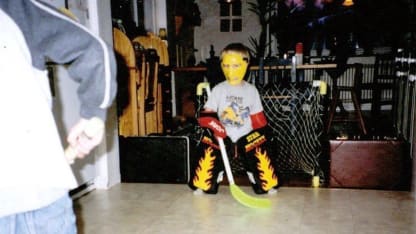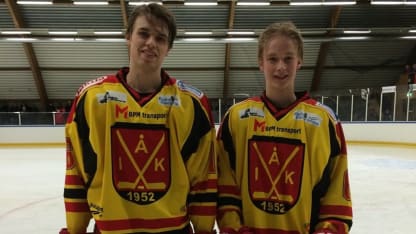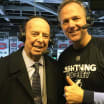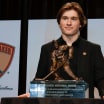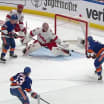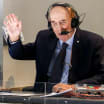Referring to his five-point performance in a 7-6 overtime win against the Colorado Avalanche at Rogers Arena on Friday, a reporter started to ask, "What do you think the win the other night and the way you did it …"
Pettersson cut him off.
"We did it," he said.
Asked about becoming the fifth player in a century to score 10 goals in his first 10 games, Pettersson said he was happy about it but pointed out the Canucks hadn't defeated the Red Wings that night. It was no time for celebration.
"There's some guys that you can tell are wired for success, and I feel like he is," Green said. "He talks like he is, and he's been very humble still and not getting too far ahead of himself."
Emil said Elias has matured a lot the past couple of years.
"It's impressive that he's had so much success the last two, three seasons, and he's still the same person," Emil said. "He hasn't changed a bit toward family, friends."
Toward hockey, either. He's the same kid having fun on the ice, using his imagination.
"The game is so fast out there," Elias said. "You have to be quick. I always try to be one step ahead of the play and always make plays. That's what hockey's all about. Sometimes it works, and when it doesn't work, I try to figure out another way.
"Nobody's perfect. Of course, I'm better at some things than others, but I will work on everything. If my shot would be perfect, I would score on every shot. The more you practice, the better you'll be in games. That's always been my focus.
"I didn't know what to expect [in the NHL]. I'm just living my dream right now."

